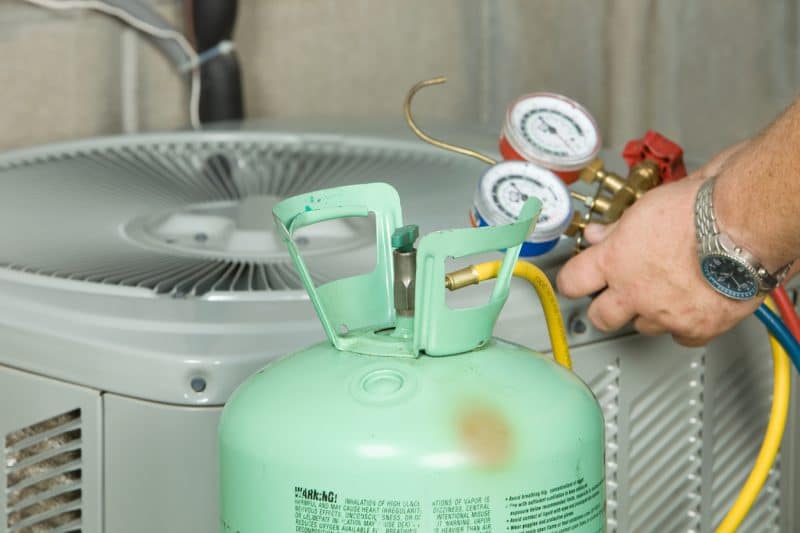
The development of refrigerants safe for use in air conditioners during the 1920s paved the way for dependable home comfort. Today, refrigerant remains the lifeblood of any air conditioner or heat pump.
Here are some fast facts to know about household refrigerant:
- The chemical has the rare property to convert from a frigid vapor that extracts heat from your house at the indoor evaporator coil into a hot liquid that releases heat into the air at the outdoor condenser coil. As refrigerant circulates continuously during the air conditioning cycle, constant coolness is the result.
- Technically speaking, a properly-maintained, fully functional air conditioner doesn’t consume refrigerant and should never require the addition of more unless the system is opened up for some reason. If certain symptoms such as poor cooling performance or ice formation on coils point toward a low household refrigerant charge, there’s usually a leak somewhere. Simply adding more won’t fix it. Utilizing leak detection equipment, a qualified HVAC service technician can first trace the source of the leak and permanently repair it, then and only then restore the refrigerant charge to the proper level.
- For decades, the standard household refrigerant for air conditioners was designated R-22. It was a fluorocarbon compound which has since been declared an environmental hazard, as it depletes the earth’s ozone layer. All R-22 is scheduled to be removed from usage in air conditioners by 2020. Its more environmental-friendly replacement, R-410A, is already the standard for all new air conditioners manufactured today. For older units that still utilize R-22, repairs that involve replacement of refrigerant will continue to become increasingly more expensive and, finally, unavailable at any cost. Aging R-22 air conditioners should be replaced with new R-410A units.
For more about household refrigerant and how it affects air conditioner performance and efficiency, contact the cooling professionals at Jackson & Sons.
Jackson & Sons, Inc.
Our goal is to help educate our customers in Eastern North Carolina (including Wayne, Johnston, Greene, Lenoir, Pitt and Duplin Counties) about energy and home comfort issues (specific to HVAC systems).
Credit/Copyright Attribution: “iStock_BanksPhotos”